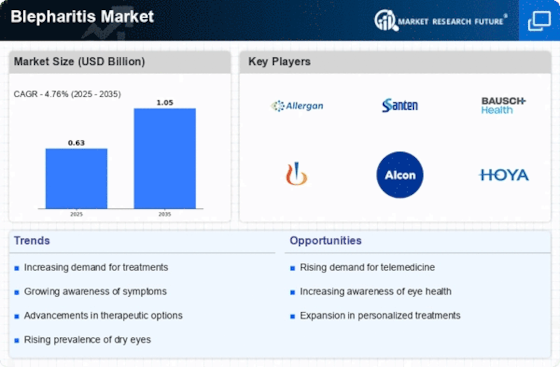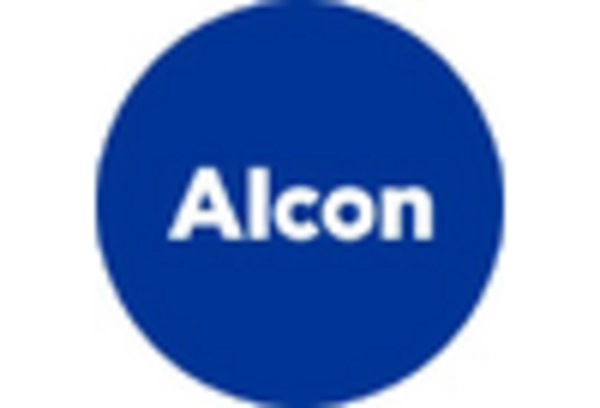Market Share
Blepharitis Market Share Analysis
Creating exceptional elements and advantages for blepharitis medicines, for example, viability, usability, wellbeing profiles, and patient solace, to separate items from rivals in the market. Sectioning the patient populace considering variables like age, orientation, significance of side effects, and fundamental reasons for blepharitis to tailor marketing messages and special exercises. Teaching eye care experts, including ophthalmologists, optometrists, and essential consideration doctors, about blepharitis conclusion, management choices, and accessible medicines to expand awareness and reception rates. Teaming up with compelling eye care subject matter experts and scientists gaining practical experience in blepharitis to advocate for explicit medicines, improve brand believability, and drive reception among medical care experts. Creating repayment methodologies and framing glandizations with payers to guarantee protection inclusion and reasonableness of blepharitis medicines for patients. Leading clinical preliminaries and studies to create powerful viability and wellbeing information for blepharitis medicines, situating items well in treatment rules and models. Ceaselessly observing market patterns, contender exercises, and administrative improvements to expect valuable open doors and difficulties, and change situating procedures as per needs. Assigning assets to advance new blepharitis medicines or work on existing treatments, tending to neglected patient requirements and supporting genuineness in the market. Carrying out techniques to broaden item lifecycles through signs development, detailing upgrades, or lifecycle management drives to keep up with market share. Creating clear and convincing brand messages and marketing efforts to successfully impart item benefits and reverberate with interest groups, improving brand awareness and dependability. Routinely assessing market offer and execution measurements, gathering criticism from partners, and refining situating systems to remain serious in the blepharitis market. Proactively distinguishing arising patterns in eye care research, for example, novel treatment draws near or analytic advances, to adjust situating methodologies and profit by future open doors.


















Leave a Comment